
Quaid-i-Azam Mahomed Ali Jinnah
A set of two commemorative postage stamps on the 16th Death Anniversary of Quaid–i–Azam Muhammed Ali Jinnah :
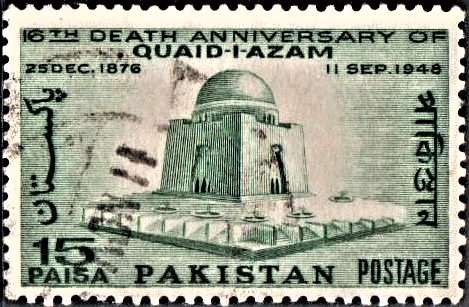
 Issued by Pakistan
Issued by Pakistan
Issued on Sep 11, 1964
Design : The main subject of the stamps is the Mausoleum of Quaid-i-Azam. The words “16th Death Anniversary of Quaid-i-Azam”, the date of birth, the date of death also appear on the stamps along with the denomination and the words “Pakistan” in Urdu, Bengali and English.
Type : Stamps, Postal Used
Denomination : 15 and 50 Paisa
Colour :
15 Paisa – Green
50 Paisa – Grey
Size of Stamps :
15 Paisa – 39 x 25.1 mm.
50 Paisa – 28.6 x 34 mm.
Size of Print :
15 Paisa – 36 x 22 mm.
50 Paisa – 26 x 31.5 mm.
Perforation Gauge :
15 Paisa – 13 x 13½ (c)
50 Paisa – 13 x 13 (c)
Quantity Printed :
15 Paisa – 15,00,000
50 Paisa – 7,00,000
Number of stamps in each sheet : 50
Process of Printing : Intaglio
Printers : The Pakistan Security Printing Corporation Ltd., Karachi
About :
- Founder of Pakistan, Mahomed Ali Jinnah, called by the nation “Quaid–i–Azam” – Great Leader – was born in Karachi on December 25, 1876. He got his early education in Karachi. Since boyhood, he was brilliant and promising, zealously devoted to his studies and fired with the ambition to grow up to be a great man. No wonder he did achieve greatness by his extraordinary qualities of mind and determination.
- After passing the Matriculation examination at the age of 16, he left for England where in 1896, he qualified himself as Barrister-at-Law from the Lincoln’s Inn. Back in India, he started practising as a lawyer in Karachi at the age of 20. Later he moved to Bombay where he established a very successful practice. He began taking part in the country’s freedom movement since the early nineties. In 1910, he was elected to the Imperial Legislative Council. He remained associated with the Council and its successor, the Central Assembly, for over 30 years. In 1913, he joined the Muslim League, an organisation formed in 1906, to safeguard the legitimate interests of the Indian Muslims, who numbered about one third of the country’s population. He became President of the All India Muslim League in 1916. Throughout his subsequent political career, he fought fervently for the just interests of the Indian Muslims, and championed their cause with devotion and courage.
- Convinced by the past experience that as a minority community, the political interests of Muslims and their distinct cultural identity could never remain safe after the withdrawal of British rule from the Indo-Pakistan sub-continent, he put forward the plan envisaging the establishment of a separate homeland – Pakistan – in the areas where the Muslims were in Majority. In 1940, the famous Pakistan Resolution was passed at Lahore demanding the creation of Pakistan as an independent, sovereign country. Thereafter, the achievement of Pakistan as a separate homeland became Jinnah‘s dominant aim which he steadfastly pursued, and by dint of his exceptional statesmanship, constitutional acumen, and intelligent advocacy, he ultimately succeeded in getting the Pakistan idea accepted by the Indian National Congress – a predominantly Hindu political organisation – as well as the British Government.
- Quaid-i-Azam Mahomed Ali Jinnah became the first Governor-General of Pakistan after its emergence as a new country on the 14th August, 1947. He died in Karachi on the 11th September, 1948.
- With the compliments of the Director-General, Pakistan Post Office, Karachi.


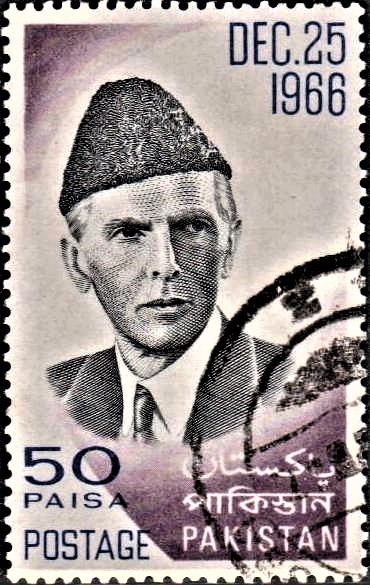
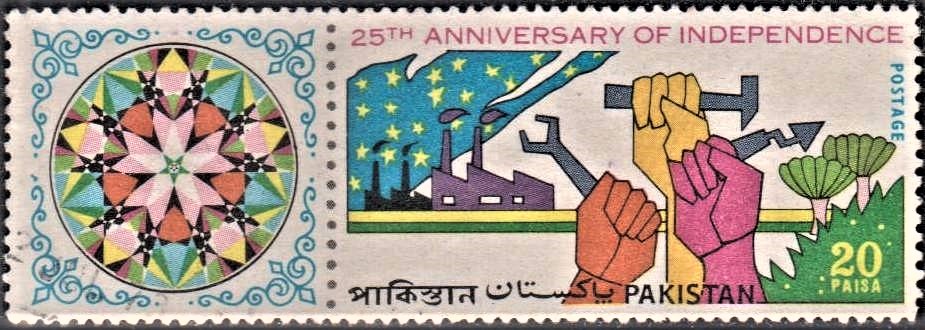
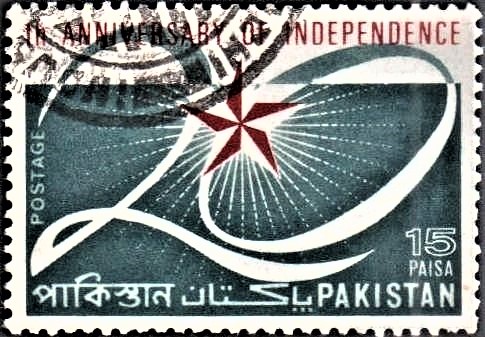

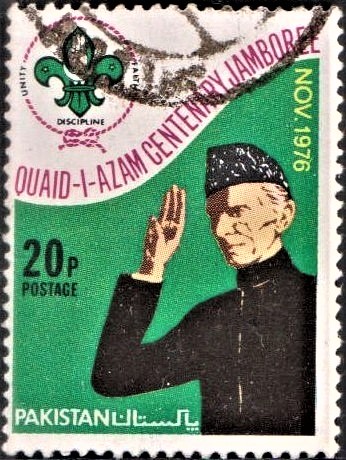

[…] children from the prisons of Raja Dahir and constructed the first mosque at the town. Quaid-e-Azam Mohammad Ali Jinnah, the Founder of Pakistan, acclaimed the event – “the Pakistan movement started when the first […]
[…] The college brought out in 1923 the first issue of the magazine (The Oasis) in English while the Urdu Section was called Nakhhistusme Abad. Ahmed Nadim Qasmi, the renowned poet of Pakistan, Prof. M. D. Hasan a veteran educationist and Prof. Dilshad Kalanchvi, a well known Saraiki poet and winner of President’s Award, have also been the editors of the college magazine. The Oasis had the privilege of publishing a letter of Dr. Sir Muhammad Iqbal and a message from the father of the nation, Quaid-e-Azam Muhammad Ali Jinnah. […]
[…] after independence in 1947 the Girl Guides movement was re-established in Pakistan as Quaid-i-Azam, Muhammad Ali Jinnah, well understood the need for the training of youth, who would be the future leaders of the […]
[…] Risalpur, which had the proud distinction of being the only military Academy ever visited by the Quaid–e–Azam, mount Guard at the Quaid’s mausoleum to pay homage to the Father of the Nation. The Bases are […]
[…] in 1924. The first issue inaugurated by Mahatma Gandhi and carrying articles by Motilal Nehru, Muhammed Ali Jinnah and Jawaharlal Nehru was launched on September 24, 1924. In 1925, ownership of the newspaper passed […]